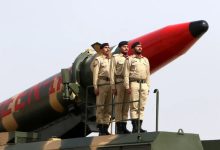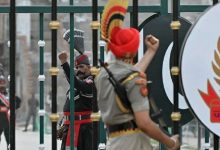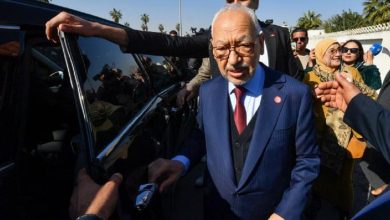General Asim Munir: Pakistan’s Strategic Sniper Steps into Political Command
As tensions flare on the Kashmir border, Pakistan’s army chief emerges as the most powerful figure in Islamabad—reshaping military and political dynamics alike.

Watan-At a tense moment on the Kashmir border, a Pakistani figure steps out of the shadows and into the spotlight: General Asim Munir, the Chief of Army Staff, now widely regarded as the most powerful and influential decision-maker in the country.
Known by his military nickname “The Strategic Sniper,” Munir is far more than just a commander—he embodies the true power center of Islamabad. As threats from India intensify and the drums of confrontation beat louder, his frequent public appearances and sharp rhetoric have reshaped the language of Pakistan’s military doctrine.
Munir began his military career in 1986, joining the 23rd Battalion of the Pakistan Frontier Force. Over the years, he rose through critical positions, including leading Military Intelligence and later the powerful Inter-Services Intelligence (ISI), before taking command of the army in November 2022.
في ظل تصاعد التوترات بين #الهند و #باكستان، يبرز اسم جديد على رأس مشهد معقد.. رجل عسكري صارم وغامض، لم يظهر كثيرًا أمام الكاميرات
لكن حضوره بات يفرض نفسه على قرارات بلدٍ يختلط فيه الأمن بالسياسة، إنه الجنرال عاصم منير.. فماذا نعرف عن “قائد الظل” الذي فاجأ الهند بما لم تتوقعه… pic.twitter.com/SJ0SMP2Apa
— وطن. يغرد خارج السرب (@watanserb_news) May 7, 2025
General Munir and the Making of Pakistan’s Security State
A man more familiar with battlefield realities than the corridors of politics, Munir was nevertheless pulled into the political fray when he clashed with former Prime Minister Imran Khan. He played a decisive role in Khan’s removal following months of internal conflict and rising tensions.
Within army circles, Munir is often referred to as “The Mullah General” due to his visible piety and memorization of the Qur’an. He combines a calm demeanor with an unyielding decision-making style, and is known for standing firm under pressure.
Now, amid rising border tensions and an accelerating arms race with India, observers say Munir is playing the most critical role in shaping Pakistan’s policy—not just militarily, but strategically.
The Pakistani military has long been seen as the country’s unofficial power broker. But under Munir’s leadership, its role has become overt and central in defining both domestic and foreign policies.
So the question arises:
Are we witnessing the rise of a new era where the general governs in uniform?
Or is Pakistan sliding into a full-fledged security state ruled from the operations room rather than the parliament?






